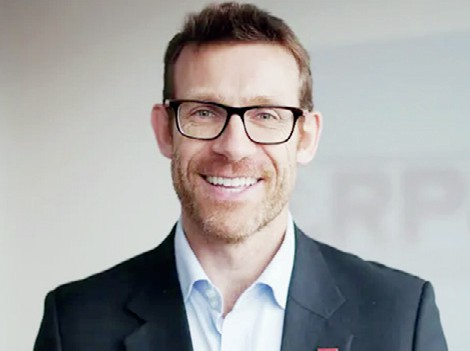Rugby Players' Association (RPA) CEO Damian Hopley says the organisation is “doing all it can” to help members affected by the jobs crisis.
As one of the many services offered by the RPA, a confidential counselling hotline continues to take calls from anxious players left without a contract.
Hopley admits some of the stories are “harrowing” and that these are “desperate times” as players suffer the fall-out of the game being in a perilous financial position.
“The confidential counselling service has been in place for nearly two decades now and we definitely see spikes at this time of year based upon players falling out of contract and not getting jobs.
The pressures on them grow immeasurably,” said Hopley, right, who will step down as CEO after 24 years ahead of the new season.
“With the reduction in the salary cap and everything that has gone on over the last few years, the foreboding sense of inevitability in all of this is the hardest thing for outof-contract players.
“The squeezed middle is getting further squeezed.
The harsh reality of all of this is that the game is still in a fragile financial position and it is inevitable that the players are on the wrong end of it.
“So much recruitment is done a year in advance so if it comes to January 1 and you haven't got a contract and the phone isn't ringing, the pressure is on.
“You've got players being offered £20-25 grand to be a third-choice player at a Premiership club and they are saying, ‘I could go and get a job and play National One or lower division rugby and get a better financial package'.
“Similarly with the Championship, it is widely documented the financial position that the league is in, so the jobs that were there previously aren't there anymore, and if they are, they are going to be far worse paid so there is a cascade effect that puts players in an invidious position.”
A loss of identity as much as earnings is one of the unwanted sideeffects of players falling out of the game, Luke Cheyne points out. Cheyne is the head of the RPA's Gain Line initiative that helps to facilitate players getting more strings to their bow well before their playing days come to an end.

He said: “The financial point is an important one because, potentially, rugby players might not be earning a salary not that much higher than the average population. But take that aspect out of the conversation, ultimately we are talking about players who are leaving the game very early on in their lives, in their 20s and 30s, so they will need something to fulfil them.
“Even if they had all the money in the world and they didn't need to work from a financial standpoint, there is a big point around identity. If you've been a rugby player for a sustained period of time, particularly those who have been lucky enough to play one or two decades in the Premiership, how do you replace that? It can be a very tricky situation. It is not something that can be flicked on and off.
“One thing we want to do is to try and help players facilitate finding out what they will or won't like as early as possible.
“Players have an abundance of transferable skills beneficial to the workplace that not even they realise; they are performancedriven, they recognise you get out what you put in and they are able to take instant feedback without taking it personally.
“A lot of companies are recognising the value of professional athletes, similarly to ex-military personnel.”



























